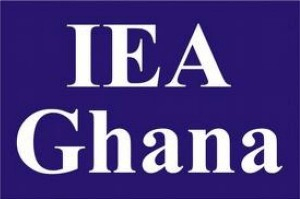IEA urges government to adopt fiscal policy rule
 The Institute of Economic Affairs (IEA), has called on government to adopt an appropriate fiscal policy to deal with the country’s mounting public sector debt, rising expenditure and the debt-to-gross domestic product (GDP) ratio.
The Institute of Economic Affairs (IEA), has called on government to adopt an appropriate fiscal policy to deal with the country’s mounting public sector debt, rising expenditure and the debt-to-gross domestic product (GDP) ratio.
The IEA said weak fiscal management has worked to undermine Ghana’s economic progress by “exacerbating macro-economic instability, creating a looming debt crisis and crowding out the private sector.”
Dr John Kwakye, Senior Economist at IEA, who said this on Tuesday during a discussion on public financial management, added that the acceptance of a fiscal policy rule would enhance transparency and improve fiscal performance.
However, he said, for it to be effective, the fiscal rule would require a number of supporting arrangements and mechanisms.
The mechanisms include strengthening budget preparation, creating an independent fiscal council or parliamentary budget office to provide an independent assessment and monitoring of the budget.
There would also be the need for legislative changes such as the enactment of a fiscal responsibility law to give legal backing to the rule and also to provide an avenue to ensure flexibility in dealing with unanticipated shocks.
The policy think tank also predicted that with the country subscribing to the International Monetary Fund (IMF) bailout, its debt-to-GDP ratio could hit 72 per cent soon.
“For purposes of comparison, under the current Ghana-IMF programme, the debt-to-GDP ratio is forecast to peak at 72 per cent in 2015,” Dr Kwakye said.
He expressed optimism that the ratio could fall to 58 per cent by 2019 and further to 39 per cent by 2034 based on what he described as “progressive fiscal consolidation and continued decline in the fiscal deficit.”
Ghana’s public sector debt currently stands at GH₵88 billion, close to 70 per cent of GDP.
The institute said discretionary fiscal policies over the years have failed to work and it is time the country adopt the fiscal policy rule to check excessive borrowing.
The incessant resort to IMF bailouts is a reminder of the failure, Dr Kwakye said, noting that “adopting a fiscal policy rule embedded in legislation will help to entrench much-needed fiscal discipline in Ghana.”
However, former Finance Minister, Mr Yaw Osafo Marfo, blamed the country’s economic woes on parliament’s inability to analyse the annual budget, allowing the Finance Ministry to often dictate the pace.
“The first major problem is the lack of capacity to analyse the budget, we need to give some capacity to parliament to be able to analyse the budget and compare it with what the Finance Ministry does,” he said.
He said the country’s laws are not well coordinated to ensure the necessary enforcement and sanctions against excessive borrowing and expenditure.
Source: GNA
